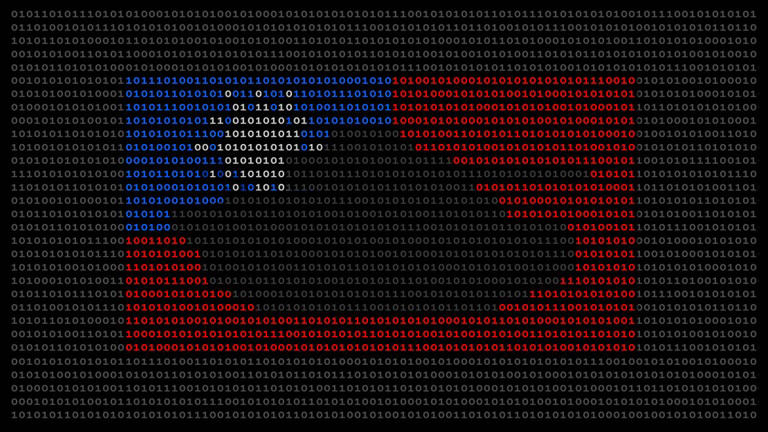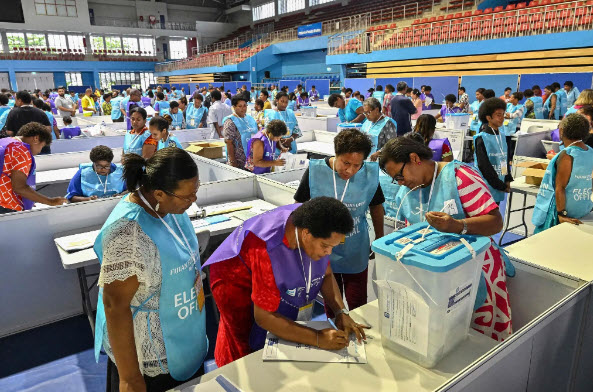
Taiwan Is Already Fighting Back
By Anne Applebaum
14 December 2022
In 2018, a typhoon stranded thousands of people at Kansai International Airport, near Osaka, Japan. Among them were some tourists from Taiwan. Normally, this story might not have had much political meaning. But a few hours into the incident, an obscure Taiwanese news website began reporting on what it said was the failure of Taiwanese diplomats to rescue their citizens. A handful of bloggers began posting on social media, too, excitedly praising Chinese officials who had sent buses to help their citizens escape quickly. Some of the Taiwanese tourists supposedly had pretended to be Chinese in order to get on board. Chatter about the incident spread. Photographs and videos, allegedly from the airport, began to circulate.
The story rapidly migrated into the mainstream Taiwanese media. Journalists attacked the government: Why had Chinese diplomats moved so quickly and effectively? Why were the Taiwanese so incompetent? News organizations in Taiwan described the incident as a national embarrassment, especially for a country whose leaders proclaim they have no need for support from China. Headlines declared, “To Get on the Bus, One Has to Pretend to Be Chinese,” and “Taiwanese Follow China Bus.” At its peak, the angry coverage and social-media attacks became so overwhelming that a Taiwanese diplomat, apparently unable to bear the deluge of commentary and the shame of failure, died by suicide.
Subsequent investigations turned up some strange facts. Many of the people who had been posting so prominently and with such enthusiasm about the incident were not real; their photographs were composite images. The obscure website that first promoted the story turned out to be affiliated with the Chinese Communist Party. The videos were fake. Strangest of all, the Japanese government confirmed that there had been no Chinese buses, and thus no special Taiwanese failure at all. But this semblance of failure had been pounced upon by journalists and news anchors, especially by those who wanted to use it to attack the ruling party. This, clearly, was what Chinese propagandists had intended. The anonymity of social media, the proliferation of “news” sites with unclear origins, and, above all, the hyper-partisan nature of Taiwanese politics had been manipulated in order to push one of the Chinese regime’s favorite narratives: Taiwanese democracy is weak. Chinese autocracy is strong. In an emergency, Taiwanese people want to be Chinese.
The incident was notable not because it was entirely new or unexpected but because it was another battle in a long-term campaign that arguably dates back to the founding of modern Taiwan. In 1949, General Chiang Kai-shek moved his Nationalist Party, the Kuomintang (KMT), to the island and established the Republic of China there. Ever since, the People’s Republic of China has seen Taiwan as its ideological enemy, an irritating reminder that not all Chinese wish to be united under the leadership of the Communist Party.
Sometimes Chinese pressure on Taiwan has been military, involving the issuing of threats or the launching of missiles. But in recent years, China has combined those threats and missiles with other forms of pressure, escalating what the Taiwanese call “cognitive warfare”: not just propaganda but an attempt to create a mindset of surrender. This combined military, economic, political, and information attack should by now be familiar, because we have just watched it play out in Eastern Europe. Before 2014, Russia had hoped to conquer Ukraine without firing a shot, simply by convincing Ukrainians that their state was too corrupt and incompetent to survive. Now it is Beijing that seeks conquest without a full-scale military operation, in this case by convincing the Taiwanese that their democracy is fatally flawed, that their allies will desert them, that there is no such thing as a “Taiwanese” identity.
Taiwanese government officials and civic leaders are well aware that Ukraine is a precedent in a variety of ways. During a recent trip to Taiwan’s capital, Taipei, I was told again and again that the Russian invasion of Ukraine was a harbinger, a warning. Although Taiwan and Ukraine have no geographic, cultural, or historical links, the two countries are now connected by the power of analogy. Taiwanese Foreign Minister Joseph Wu told me that the Russian invasion of Ukraine makes people in Taiwan and around the world think, “Wow, an authoritarian is initiating a war against a peace-loving country; could there be another one? And when they look around, they see Taiwan.”
But there is another similarity. So powerful were the Russian narratives about Ukraine that many in Europe and America believed them. Russia’s depiction of Ukraine as a divided nation of uncertain loyalties convinced many, prior to February, that Ukrainians would not fight back. Chinese propaganda narratives about Taiwan are also powerful, and Chinese influence on the island is both very real and very divisive. Most people on the island speak Mandarin, the dominant language in the People’s Republic, and many still have ties of family, business, and cultural nostalgia to the mainland, however much they reject the Communist Party. But just as Western observers failed to understand how seriously the Ukrainians were preparing—psychologically as well as militarily—to defend themselves, we haven’t been watching as Taiwan has begun to change too.
Although the Taiwanese are regularly said to be too complacent, too closely connected to the People’s Republic, not all Taiwanese even have any personal links to the mainland. Many descend from families that arrived on the island long before 1949, and speak languages other than Mandarin. More to the point, large numbers of Taiwanese, whatever their background, feel no more nostalgia for mainland China than Ukrainians feel for the Soviet Union. The KMT’s main political opponent, the Democratic Progressive Party, is now the usual political home for those who don’t identify as anything except Taiwanese. But whether they are KMT or DPP supporters (the Taiwanese say “blue” or “green”), whether they participate in angry online debates or energetic rallies, the overwhelming majority now oppose the old “one country, two systems” proposal for reunification. Especially since the repression of the Hong Kong democracy demonstrations, millions of the island’s inhabitants understand that the Chinese war on their society is not something that might happen in the future but is something that is already well under way.


